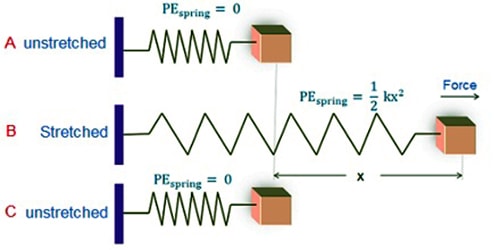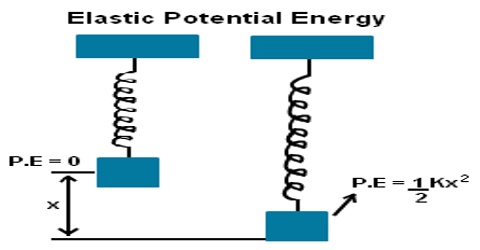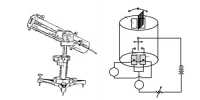Elastic Potential Energy
Within elastic limit, if a force is applied on a body it becomes strained and when the force is withdrawn the body gets back its original shape. In order to strain or deform a body, we need to do work on the body. This work remains stored as potential energy. This energy is called elastic potential energy. Elastic potential energy is energy stored as a result of applying a force to deform an elastic object. Let find the equation of elastic potential energy.
The potential energy of a stretched spring
Let one end of an ideal horizontal spring be fixed at a wall and a block of mass m is attached to the other end. The block can move on a frictionless horizontal surface (Figure). We neglect the mass of the spring compared to the mass of the block.

Fig: Elastic Potential Energy
Now, the spring is stretched along its length by a distance x. Due to elastic property, the spring will exert a force called restoring force which will try to oppose the deformation. This restoring force is proportional to the displacement and acts opposite to the displacement i.e.,
F ∞ – k
or, F = kx.
where k is a constant of proportionality and is called force constant of the spring. Now, to stretch the spring we must do work by applying a force F’ equal but opposite to the force F exerted by the spring. So,
Now, to stretch the spring we must do work by applying a force F’ equal but opposite to the force F exerted by the spring. So,
F’ = – F = – (- kx) = kx
This work remains stored as potential energy in the spring. So, potential energy;
U = W = x∫0 Fdx = x∫0 kx dx
= k x∫0 x dx = k [x2/2]x0
so, U = ½ kx2
While compressing the spring by x, the same amount of energy will remain stored as potential energy in the spring.











